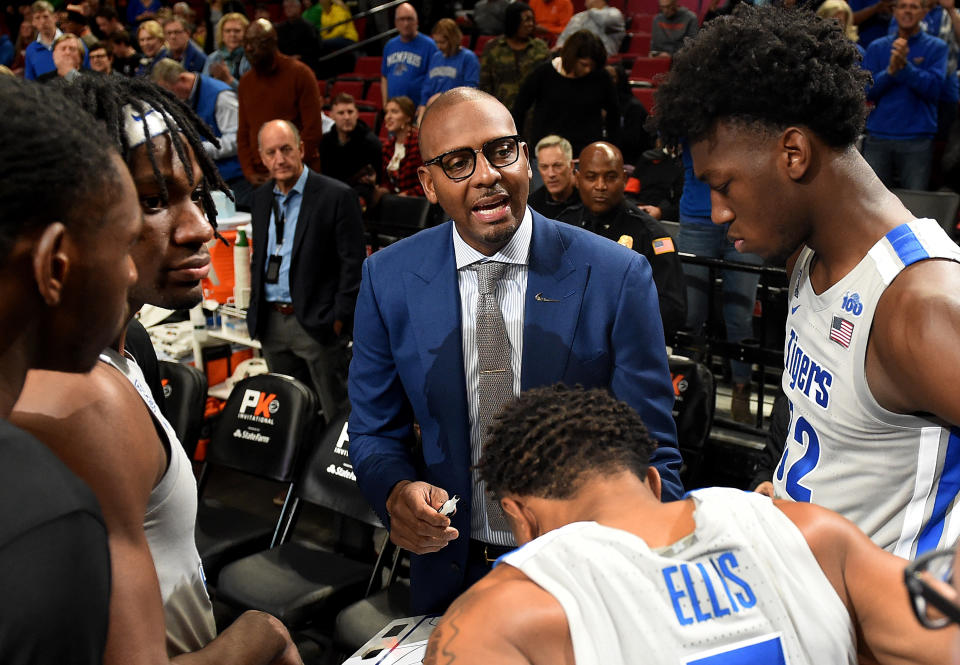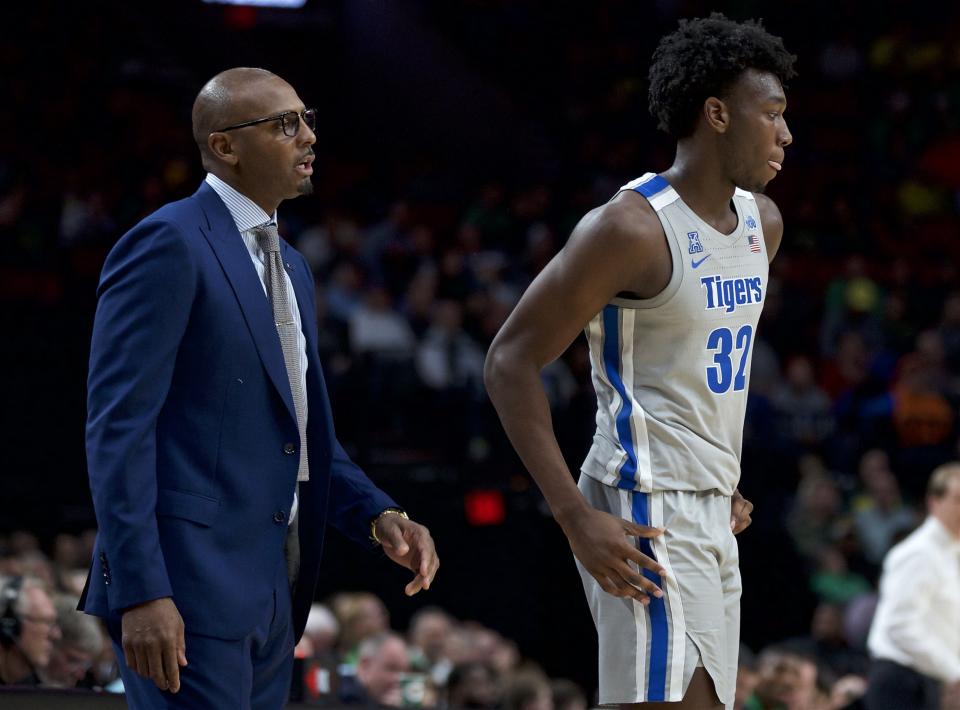If NCAA has to punish somebody in James Wiseman debacle, blame Penny Hardaway

Last week, after being ruled ineligible by the NCAA, James Wiseman sued, got an injunction and played a couple of games.
This week, he withdrew it, was suspended again and is now waiting for the NCAA and his school, the University of Memphis, to work out some kind of settlement.
Hopefully, it’s relatively brief and not just because the NCAA rulebook is outdated and having Wiseman, the possible No. 1 pick in the 2020 NBA draft, in street clothes serves very few people.
Mostly though, it’s because if the NCAA should be punishing anyone here — and maybe punishing no one is the proper move — they are, once again, going after the wrong person.
It should consider suspending Memphis coach Anfernee “Penny” Hardaway before it thinks about James Wiseman.
Here are some of the facts that are not in dispute.
In August of 2017, Wiseman lived in Nashville, Tennessee, but began playing for a Memphis-based AAU team coached by Hardaway, the former Memphis star and NBA legend. It made sense. Who better to get Wiseman to the NBA than Penny Hardaway?
Duly impressed with the relationship, the Wisemans decided to move to Memphis and enroll at East High School, where Hardaway was also the coach.
To help with moving costs, Hardaway gave the family $11,500.
In March of 2018, after Hardaway and the now 7-foot-1 Wiseman won a state title at East, Hardaway was named the head coach of his alma mater. A year later, Wiseman signed with Penny and Memphis and here we are.
Except that while Hardaway wasn’t the Memphis coach when he doled out the money to Wiseman’s family, he was considered a booster due to past donations to the school.
So Wiseman was ruled ineligible — after previously being ruled eligible, mind you — for taking money from a Memphis booster (Hardaway).
Now, though, it appears the NCAA and Memphis want to work something out, maybe a brief suspension a la Ohio State football star Chase Young, who just got hit with a relatively mild two-game penalty for accepting a loan.
That would be OK. The rulebook is wrong, but it is still the current rulebook. But really, why is the focus here on punishing the player rather than the coach?
The short answer is that is how the NCAA is set up. Players get buried and left in a purgatory of investigation despite having finite careers. Coaches, meanwhile, are allowed to continue to coach no matter what they are accused of while being afforded the benefit of the doubt, due process and lots of time to build a defense. It's the same with athletic administrators.
It’s all backwards, especially here.
It was Hardaway who gave out the money. Wiseman just took it. And really, what family wouldn’t take $11,500 from an AAU coach who earned $120.5 million in NBA salary alone (not counting all that Nike endorsement cash)? If the richest person you knew offered to help, are you turning it down?
You can certainly applaud Hardaway for assisting the Wisemans and you can wish such a thing wasn’t against NCAA rules. It almost assuredly is, though.
The person who should have been most aware that such a payment fell (at the very least) in the gray area of the rulebook was Penny Hardaway.

It was Hardaway who was a former college athlete and thus had gone through the NCAA system. And it was Hardaway who was a big-time high school and AAU coach who annually had recruited players on his roster. He’s a smart guy. He could have at least checked to see if it might cause some future NCAA issue.
And while Memphis and Hardaway can claim that the payment was just some basic generosity and no one could possibly tie it to the eventual recruitment of the nation’s soon-to-be top recruit, ah, come on now.
It's certainly possible it didn't dawn on anyone, but Penny Hardaway as the future Memphis coach was hardly a concept that just popped out of thin air in the spring of 2018.
Yes, Tubby Smith was the Tigers coach at the time, but there was widespread talk and much hope among Memphis fans that the beloved Hardaway would one day take over. For a possible future college coach, maybe nothing would come of the payment to a top possible recruit, but it’s a pretty decent futures bet.
Again, the system in this country shouldn’t have families such as the Wisemans needing to hide payments for moving expenses to help their son improve his chances at reaching the NBA.
And hopefully, the NCAA will consider all of that and send Wiseman back on the court.
Going forward though, the NCAA should overhaul its entire bi-level system of punishment, one that hammers players but excuses coaches.
We saw it last year as Kansas coach Bill Self got to work an entire season while a player on his team, Silvio De Sousa, had to sit because there was an accusation that an Adidas consultant, serving the interests of Kansas, paid De Sousa's handler to steer him to the university. In that case there was no evidence De Sousa, an African immigrant, had any idea about the payout. There was at least some that KU was at least generally aware of how the recruitment was playing out.
Yet the player was suspended during the investigation (he wound up missing the entire season) while the coach continued to work.
Same deal here.
Based on Penny Hardaway’s admirable and full-throated support of Wiseman and the rights of players everywhere, here’s guessing he wouldn’t even mind having to take the hit and miss a few games so his player could get back to the court.
If nothing else, it would at least make more sense than going after James Wiseman.
More from Yahoo Sports:
